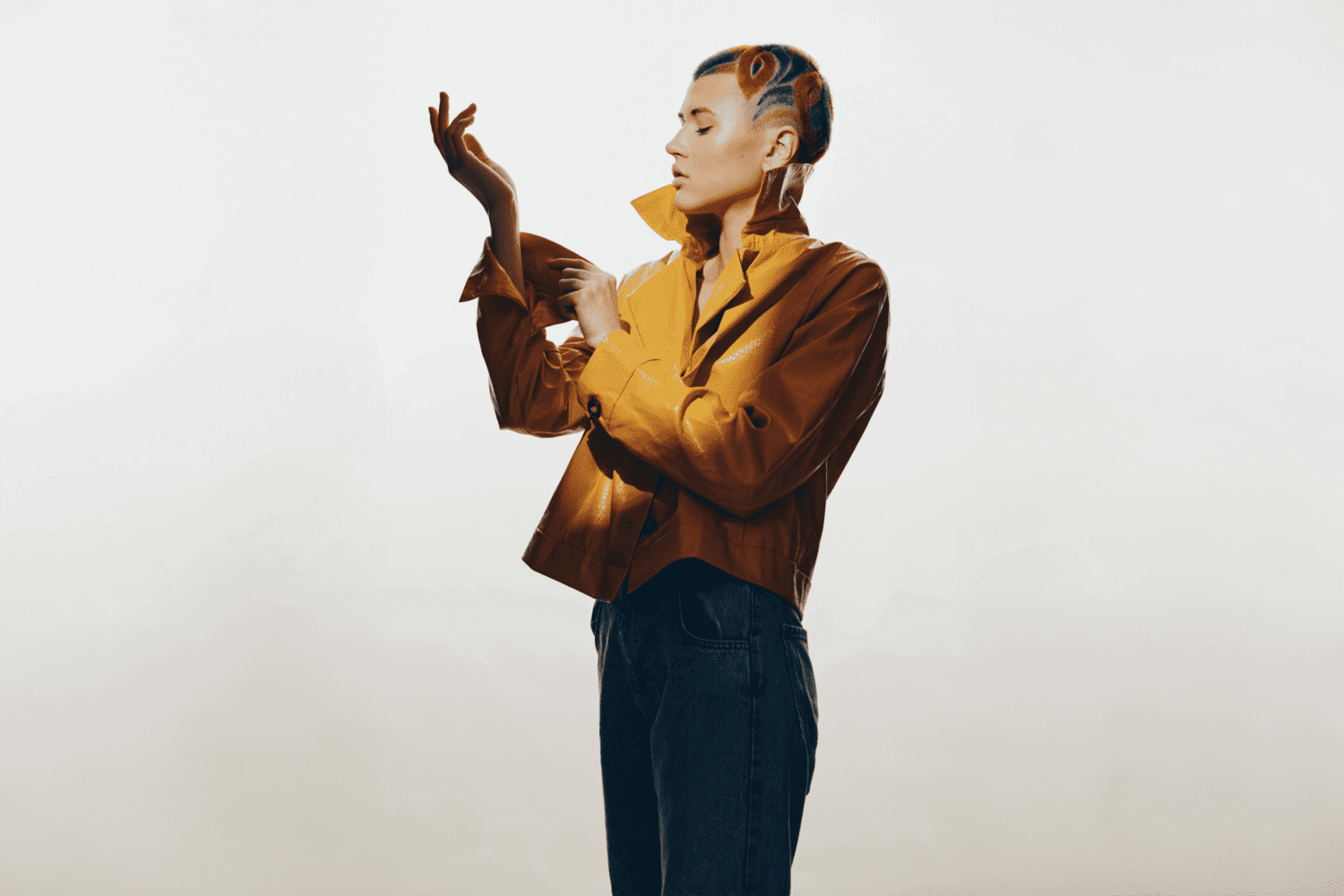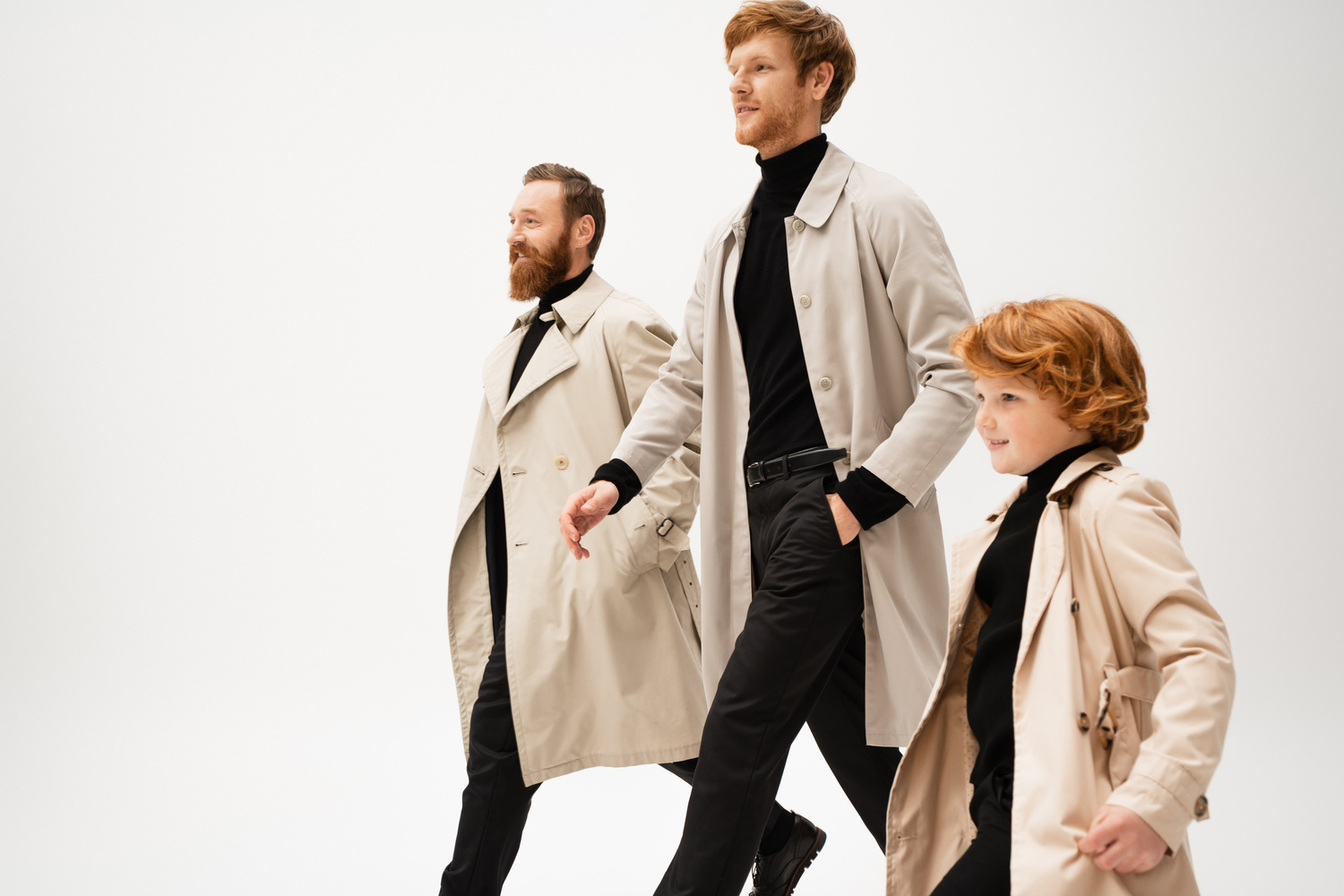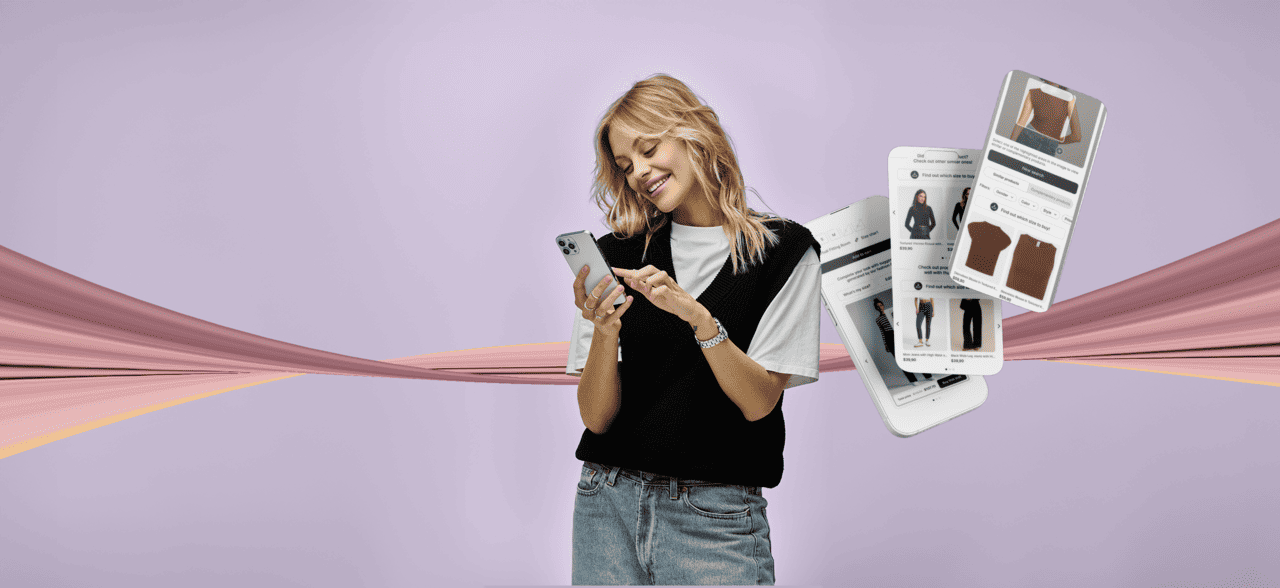Straight to the point
What makes a clothing brand popular?
It’s more than just logo recognition or celebrity collaborations. It’s about consistency and creativity, and it’s also about staying relevant to how people shop today.
In this post, we’re looking at some of the most popular clothing brands right now in three categories: luxury brands, fast fashion, and Brazilian brands. You’ll see what defines each brand’s style, why they resonate with so many shoppers, and how they continue to shape the fashion landscape.
Luxury Brands That Define Global Style
These are the names that shape fashion season after season. Rooted in tradition and fueled by innovation, these luxury brands continue to set the tone for what high-end fashion looks like today. And naturally, they’re among some of the most popular clothing brands.
Related: How Haute Couture Brands Can Inspire Your Fashion E-Commerce Store
Louis Vuitton
Louis Vuitton began in 1854 as a Parisian trunk maker and has since become the most valuable luxury brand in the world. From that foundation, the brand grew into a global symbol of luxury. Its monogram is instantly recognizable. Its designs evolve constantly, yet always feel like Louis. A mix of craftsmanship and pop culture gives this brand universal appeal. It’s timeless and current, all at once.
Gucci
Founded in Florence in 1921, Gucci started as a fine leather goods company and evolved into a global fashion powerhouse. Gucci is fearless. Velvet, color, retro prints, oversized logos. What some might call too much, Gucci turns into something unforgettable. The brand has a talent for reinvention. It leans into storytelling, fashion history, and celebrity influence without ever losing its edge. You don’t wear Gucci quietly.
Prada
Prada speaks softly but leaves a strong impression. Since 1913, it has used sleek shapes and sharp silhouettes to convey intelligence. The vibe is understated and often minimal, but never boring. Nylon bags and platform loafers live alongside conceptual runway pieces. Prada isn’t loud, but it’s always felt.
Dior
Christian Dior changed fashion forever with the 1947 “New Look,” introducing silhouettes that emphasized elegance and femininity. Today, Dior still offers fantasy, but with a modern edge. There’s grace in the tailoring. Power in the branding. It’s the kind of luxury that feels personal, yet always larger than life.
Chanel
Chanel is elegance. Founded in 1910 by Gabrielle “Coco” Chanel, the brand disrupted fashion with simplicity and intention. The little black dress, the bouclé jacket, the quilted handbag. Each piece became iconic because it stripped away excess and let women move freely. More than a century later, Chanel still leads by refining rather than chasing trends.
Related: 6 Fashion Style Icons That Transformed the Industry
Balenciaga
Balenciaga doesn’t follow rules. It questions them. Founded in 1919 in Spain by Cristóbal Balenciaga, the brand built its legacy on sculptural tailoring and innovation. First known for architectural couture, the brand now experiments with proportion, texture, and even irony. Hoodies and heels. Satire and elegance. It provokes conversation and doesn’t apologize. Love it or hate it, Balenciaga never goes unnoticed.
Versace
Versace is unapologetic glamor. We’re talking gold accents, vivid prints, and daring silhouettes. Founded in 1978 by Gianni Versace, the brand embraced sensuality and spectacle. Under Donatella’s direction, it still does. Versace walks into a room and owns it. That kind of confidence is hard to look away from.
Saint Laurent (YSL)
YSL defined cool before cool had a definition. The tuxedo jacket for women. Sheer blouses. Leather boots with attitude. Since 1961, the brand has blended sharp tailoring with rock-and-roll energy. There’s precision in every collection. A mood in every look. It never tries too hard, because it never needs to.
Hermès
Established in 1837 as a harness workshop, Hermès is about restraint. The kind that comes from deep confidence. It began with saddles and leatherwork, and it never rushed to be anything else. Every piece, from scarves to handbags, feels considered. Scarcity adds to the appeal, but so does the craftsmanship. It’s not about trends. It’s about legacy.
Givenchy
Givenchy feels effortless. It started with crisp lines and refined silhouettes, dressing icons like Audrey Hepburn. Over time, it found a new rhythm with bold cuts and streetwear influences. The balance of elegance and edge keeps it interesting. It can be classic. It can be current. Often, it’s both.
Fast Fashion Giants Shaping Shopping Habits
Fast, accessible, and always evolving. These brands built their reputation on speed and trend-savvy collections, making runway-inspired style available to everyday shoppers.
Zara
Founded in Spain in 1975 by Amancio Ortega and Rosalía Mera, Zara changed the fashion industry by creating the fast-fashion blueprint. Instead of waiting months between collections, Zara responds to trends in real time and gets new styles into stores within weeks. The vibe is clean and polished, with minimal basics sitting next to runway-inspired pieces. It’s a brand that always feels a little ahead of the curve, without ever feeling too far out of reach.
H&M
H&M opened its first store in Sweden in 1947 and quickly expanded across Europe and beyond. It became the go-to for shoppers looking for affordable fashion with just the right amount of trendiness. The brand has tried on many identities over the years, from classic basics to designer collabs and sustainability-minded collections. What holds it all together is its ability to stay adaptable. You’ll find timeless staples here, but you’ll also spot the newest cuts before they hit the mainstream.
Forever 21
Forever 21 launched in Los Angeles in 1984 and became a mall mainstay almost overnight. For years, it captured the energy of youth culture with low prices and fast-changing styles. After a reset in the late 2010s, Forever 21 has refocused on digital growth and international reach. The brand still thrives on bold silhouettes, attention-grabbing graphics, and outfit-ready looks made for going out and being seen.
C&A
C&A has been around for generations. It started in the Netherlands in the 1800s and became a major name in Brazilian fashion after launching in the country in the 1970s. Known for its easy-to-wear collections and family-friendly appeal, the brand delivers wardrobe basics, seasonal updates, and trend pieces that don’t take themselves too seriously. Its style is casual, comfortable, and made for real life.
Renner
Renner’s roots go back to 1922 in Southern Brazil, but the brand feels totally current. Its collections are sharp and city-ready, often blending global trends with Brazilian style cues. Whether it’s soft tailoring or statement prints, Renner’s pieces feel curated and accessible. It’s one of those rare brands that manages to serve a wide audience while still maintaining a point of view.
Riachuelo
Riachuelo knows its audience. From designer collabs to TV and movie tie-ins, the Brazilian brand knows how to make fashion feel fun and connected. The styling leans playful but polished, with bright colors, bold graphics, and silhouettes that flatter without trying too hard. It taps into culture without losing touch with what people actually want to wear.
Shein
Shein was born online and built for speed. Founded in 2008, the brand has exploded in popularity thanks to its massive catalog, ultra-low prices, and TikTok-fueled reach. Every aesthetic lives have a home on Shein, from cottagecore to streetwear, and new styles drop constantly. It’s less about seasonality and more about immediacy. If it’s trending, it’s probably already on Shein, and in more than one color.
Brazilian Brands Making a Global Statement
As a Brazilian fashion tech company, we couldn’t talk about the most popular clothing brands without spotlighting the homegrown labels shaping our industry. Brazil’s fashion scene, the brands below, is bold, creative, and full of personality. Each one brings something local to the global stage.
Farm Rio
Farm Rio is joy in clothing form. Born in Rio de Janeiro in the ’90s, the brand quickly made a name for itself with bold prints, tropical color palettes, and playful silhouettes. Every piece feels like a celebration of nature and culture. It’s no surprise the brand has found fans far beyond Brazil. Farm Rio manages to be both carefree and carefully crafted.
Osklen
Osklen merges beachside minimalism with urban edge in a way that’s uniquely Brazilian. The brand has long championed sustainability, with collections that use organic materials and eco-conscious processes. Osklen’s look is clean, relaxed, and quietly cool. It’s for people who want their clothes to feel as intentional as their lifestyle.
Colcci
Colcci knows how to turn up the volume. Known for its bold denim, body-hugging silhouettes, and confident styling, the brand brings a youthful, energetic vibe to the Brazilian fashion scene. There’s a glossy, editorial edge to everything it does. If you’ve ever seen a Colcci runway show, you know: this brand doesn’t do subtle.
Reserva
Reserva is full of personality. It’s casual, graphic, and just irreverent enough to make you smile. The brand has a strong sense of community and doesn’t take itself too seriously, which is part of its charm. T-shirts come with unexpected messages, sneakers have attitude, and even the basics feel like they’ve got something to say.
Lança Perfume
Lança Perfume is glam, plain and simple. Known for figure-hugging dresses, luxe details, and high-shine fabrics, it leans into a polished, ultra-feminine aesthetic. The styling is strong and confident, with looks that are ready for a party or a red carpet.
Le Lis Blanc
Le Lis Blanc is where classic meets chic. The pieces feel elevated but wearable, with tailored lines, muted tones, and the kind of details that make a big difference. Whether you’re dressing for a work meeting or a weekend getaway, Le Lis pieces are designed to move with you. It’s timeless with a Brazilian twist.
Hering
Hering is one of the most recognizable names in Brazilian fashion. The brand has built its legacy on simplicity and comfort. Think cotton t-shirts, relaxed knits, and everyday basics that hold up over time. It’s the kind of brand that becomes part of your routine without you even thinking about it. And that’s exactly the point.
Learning From the Most Popular Clothing Brands
From luxury icons to fast fashion giants to the vibrant fashion labels of Brazil, these brands are popular for a reason. Each one has carved out its own space in the fashion world by knowing its audience, staying true to its style, and evolving with the times.
Whether you’re building your own brand, managing an online store, or just keeping an eye on what’s trending, there’s always something to learn from the clothing brands leading the way.
Want more insights into what’s shaping the future of fashion and e-commerce? Explore the rest of the Sizebay blog for ideas, tools, and stories made for the people behind the brands.


